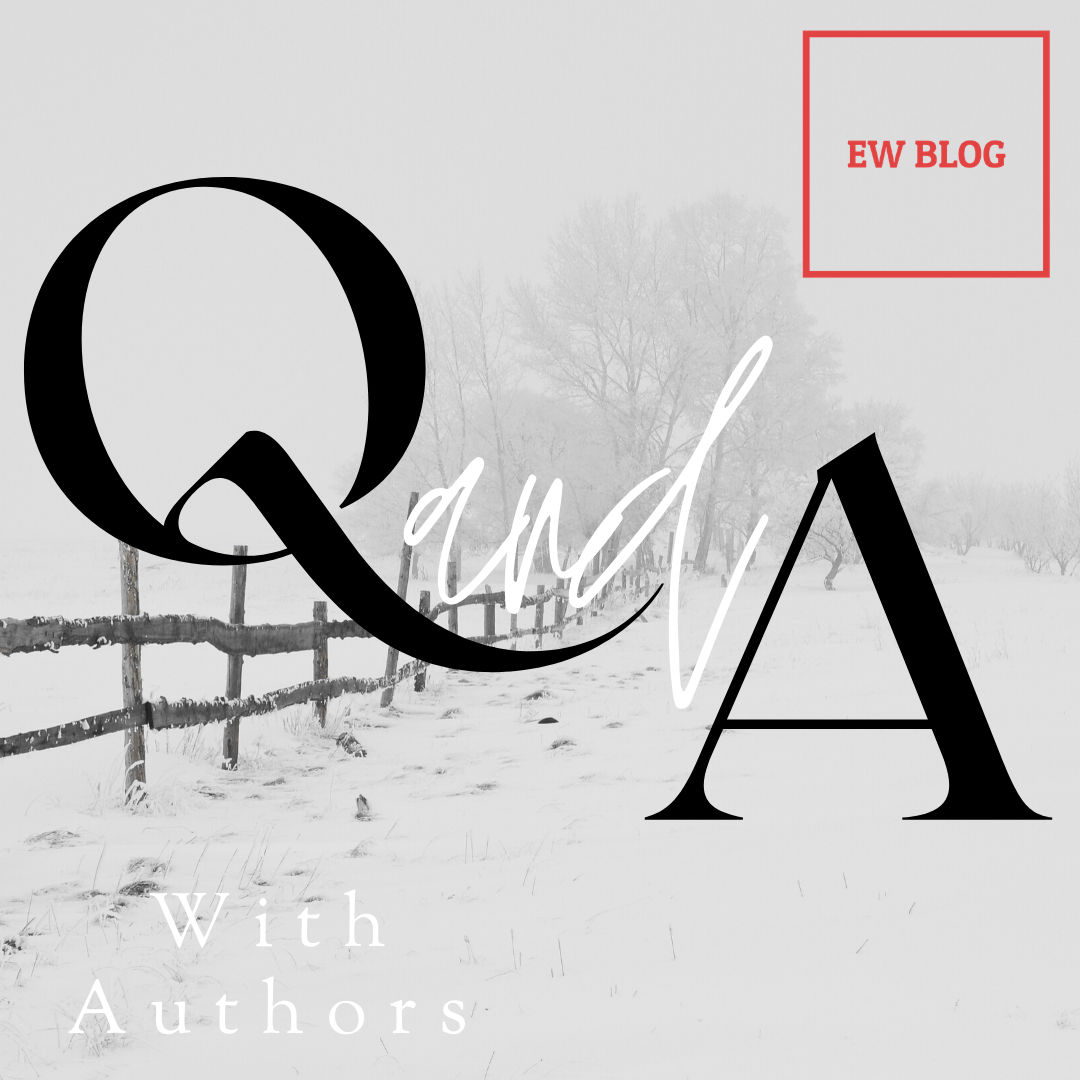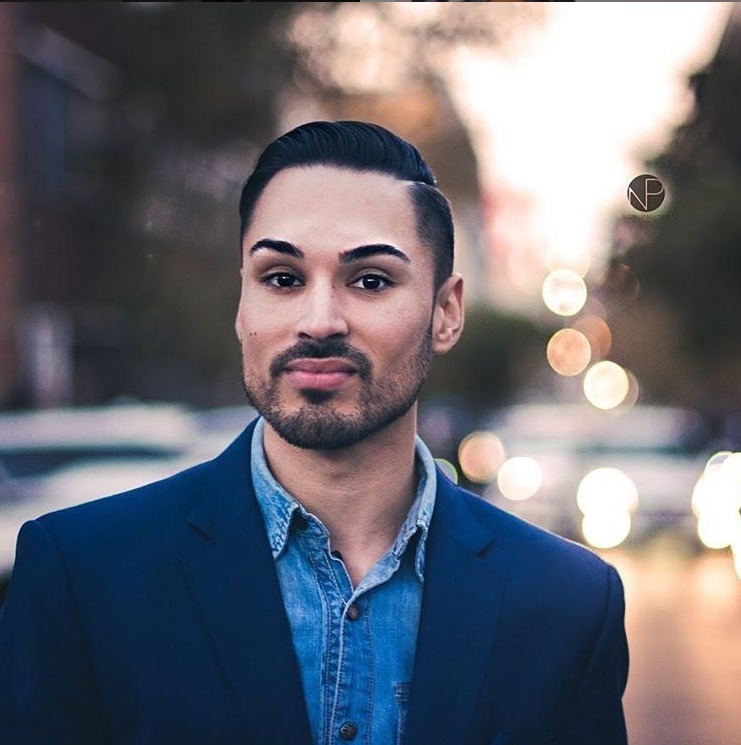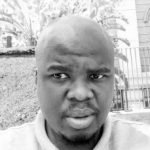

Q&A With Jamil F. Khan
Author of Khamr- the Making of a Waterslams

by Ezekiel Kekana
Jamil F. Khan is a researcher, PhD Critical Diversity studies candidate, and columnist. He released his debut book called Khamr- the Making of a Waterslams. The book was published under Jacana Media and has been described by many as a ground-breaking memoir of the 21st century. In this Q&A session with EW Blog editor, Jamil speaks about the writing process of Khamr, tackling his family biggest source of shame, and his conscious use of the terms, Satan and god in the book.
Picture credit: Jamil F. Khan

Question: First, congratulations, Jamil on your debut book, how has the reception been from the readers since the release of the book?

Answer:
Thank you! I am realising more and more that this work is one that looms large but moves slowly. Now that the initial launch excitement has died down, I am receiving such deeply reflexive, heartfelt feedback from readers. Besides appreciation for the writing, people are identifying so personally with the story and in many cases, are finding healing in the vocabulary I have used to illuminate the politics contained within. I am grateful that this work is being received with the depth and affect I hope to reflect in my work.

Question: Khamr- the Making of a Waterslams, take us through the process of writing this book which has been described by many as a ground-breaking memoir of the 21st century?

Answer:
I was not aware of this description, but I am pleased. The process occurred over a period of roughly 8 years. The book started out as a diary, which I started keeping to make sense of my experiences and relationships. When I reached my early 20s, I started trying to make sense of my upbringing and the lessons I had learnt. While writing, a lot of my decision making was around who and what to include – essentially deciding what is of value to the story. My aim was ultimately not to be sensational. In my treatment of the characters, who are or were real people, my process was always to foreground humanity first. The writing of the words that eventually ended up on the page was a process that dictated to me, rather than the other way around.

Question: Khamr is an Arabic term used to describe Muslims who defiles their bodies with alcohol, why did you decide to go with this title?

Answer:
Khamr is an Arabic word which means intoxicants or generally, wine. Waterslams is a Cape Afrikaans word which means “watered down Muslim” and is generally, but not exclusively applied to Muslims who consume alcohol and generally do not practice a close-to-perfect Islam. I decided on those terms because I felt it would be interesting to use the language and terminology often mobilised as a weapon against people like me, to introduce a story that speaks back to that violence. Beyond that, it was also about reclaiming the language used to ridicule me.

Question: You talk about your own dysfunctional family in the book, more so about your alcoholic father, were you not scared that your extended family, especially from the paternal side might not be happy with you revealing the family’s secrets in public?

Answer:
Well, there have already been objections. However, no. I was not afraid because I have always been very clear that our biggest source of shame as a family has been secrecy. It is that secrecy that led me to try and find fault with myself for all the things that happened as a result of my father’s terrorism. There can be nothing more important that healing from that. Besides that, this is not only about us, but is also a mirror up to South Africans in general. The work here is much bigger than personal disagreements.

Question: Generational trauma, racism, addiction, identity, sexuality, queerness, prejudice, religion, whiteness are some of the themes you touch on the book, while this is your own story, what overall message were you trying to convey to the readers with this book?

Answer:
I think it is important for South Africans, and people elsewhere in the world to engage with the systems of domination we are all either oppressed by or beneficiaries of. I wanted to show just how complicated the existence of racialised and sexualised people are and that any articulation of our experiences must be conveyed through a multitude of lenses. We are varied and incapable of conclusion – we must be known as such.

Question: It is not every local writer who can have an internationally acclaimed author and feminist superstar to write a foreword on their book, how did you manage to convince Mona Eltahawy do that for your book?

Answer:
It was quite serendipitous. She was the keynote speaker at the 2019 Abantu Book Festival and while hanging around after opening night, my publisher and I were talking about a foreword for my book. My publisher suggested that we ask her and we didn’t speak to her that night. I then sent her a DM on Twitter saying I would love to meet her and talk about my upcoming book. We met two days later after her talk with Prof Pumla Gqola and I explained the book to her. She graciously and enthusiastically agreed.

Question: Islam like many other religions is still a space that is very much homophobic. In 2020, how do we create a space where Muslim gay and lesbian can still practice their religion without being shamed for who they are?

Answer:
This is very difficult question for me to answer, since I see most religious systems as power structures, but I guess I could say that finding a personal community of allies is important. As I’ve realised through the feedback on my book, there are so many like me but we are afraid to let each other know. It is difficult, but form intimate support systems with people like you and practice your faith in ways that serve you.

Question: One issue that many readers, especially white Christians had a problem with in the book was your conscious use of the words Satan and god, with the former in big cap and the latter in small, explain the reason why you chose to use the words like that?

Answer:
I do explain it in the book, and this is deliberate. What I wanted to do was show how our general conceptions of god are embodied by a white, cisgender, heterosexual, able-bodied man and that understanding feeds into the relentless power of white supremacist male power in the world. We have all been taught to see god as a white man and so white men become gods on earth. The evidence if all around us, and I wanted to diminish that power. Conversely, Satanism and Satan are constructs that have been attached to indigenous people all over the world. Black people in Africa have long been accused of witchcraft and Satanism for practicing African spirituality. In fact, many have been murdered buy colonisers for this reason. I wanted to show how the idea of Satan has been manipulated and misrepresented to justify white patriarchal violence throughout history. And lastly, I wanted to unsettled people, which I believe has been achieved. We must face ourselves honestly.

Question: If you were to invite three authors to a dinner date in Cape Town, who would that be and why them?

Answer:
Assuming they have to be alive: Dr Grada Kilomba, Prof Pumla Gqola and Prof Zoë Wicomb.
These are people who write with such clarity and yet tenderness about the world we see around us. I would love to experience such power.

Question: What message do you have for the so-called ‘good men’ (the not-all-men are trash brigade) who know rapists, abusers, homophobes, and racist among them and but take no actions against such people?

Answer:
Simple: You know what the problem is, and you choose not to see it. You’re lying and eventually, your complicity will harm you too.

Question:
Which book are you currently reading?

Answer:
The Color Purple by Alice Walker
Book Review
Share this:
- Click to share on X (Opens in new window) X
- Click to share on Facebook (Opens in new window) Facebook
- Click to print (Opens in new window) Print
- Click to share on LinkedIn (Opens in new window) LinkedIn
- Click to share on Reddit (Opens in new window) Reddit
- Click to share on Tumblr (Opens in new window) Tumblr
- Click to share on Pinterest (Opens in new window) Pinterest
- Click to share on Telegram (Opens in new window) Telegram
- Click to share on WhatsApp (Opens in new window) WhatsApp
- Click to email a link to a friend (Opens in new window) Email

